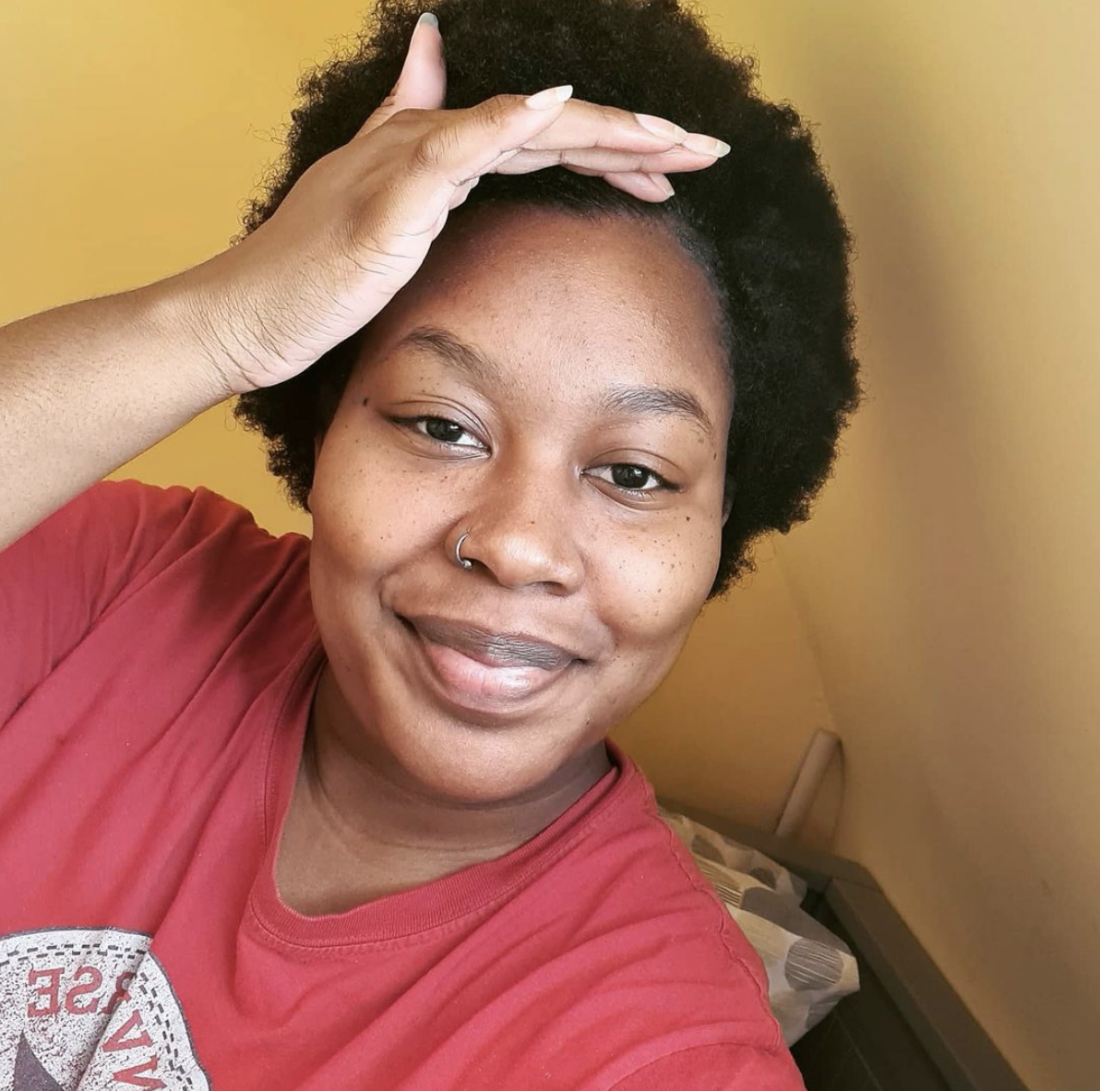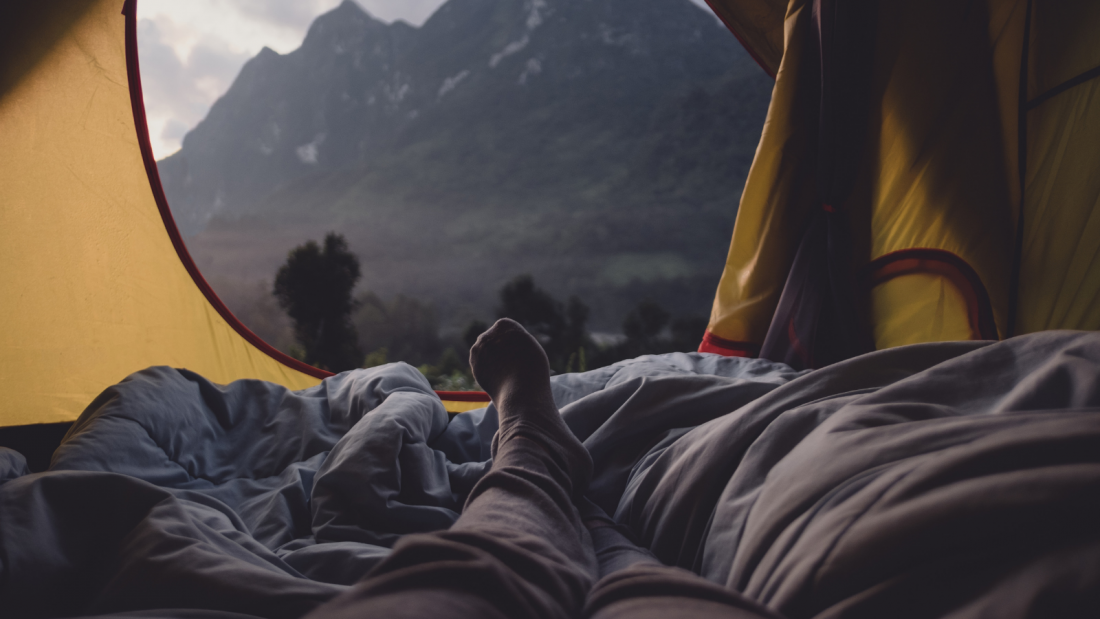Tianna Johnson, founder and organizer of Black Girls Camping Trip sat down with Melan Magazine to explain the upcoming gathering of Black women off the beaten path to bond, have a sense of community and reconnect with nature.
Who is Tianna Johnson?

I am a 24-year-old North West London native with a Jamaican background. In my day to day, I’m a community organiser for Black Girls Camping Trip and a screenwriter. You can read more about my work at tiannajohnson.co.uk
What sparked the idea to create Black Girls Camping Trip?
More than anything, the reason I started Black Girls Camping Trip was because of loneliness. The version of myself that sat in my room and tweeted asking if any Black girls in London wanted to come camping with me needed to be in the outdoors but also needed to be around others like me.
Who are the women who typically join your Black Girls Camping Trip?
The people who come to our trips are people who can have a good time despite circumstances. The outdoors can change at any time and it is a big thing when something like the weather takes a turn for the worst, so it’s important that people are able to push through and want to have a good time. We attract a lot of Black queer and non-binary women. This is a given because I’m an openly bisexual woman and most of my team are queer and/or trans. We then attract a lot of people with general anxiety disorder and depression, things that affect so many of us, and they just want to come down and have a good time.
Every type of holiday to consider for your very first post-lockdown trip
Do participants need to have previous knowledge of camping? For example, how to set up tents etc?
Campers need no experience. Camping with us is a very soft experience and this is because Black people are less likely to spend time in the outdoors in this way, in the UK. Over 95% of us live in cities and urban areas, making the great outdoors seem terrifying in comparison to the convenience of a metropolitan area. We support campers in choosing what they need and have one section of our blog dedicated to ‘comfort camping’ to help campers choose their tent, what to do with their hair and loads of other things.

Your promo says that there will be up to 20 activities for campers to enjoy. What are these activities and what else can campers expect during the two-day retreat?
Activities include: an art session, a BBQ, creative writing, dance and fitness sessions, knitting, a pub quiz, a skincare session, games night, plus much more.
Campers can also expect a food truck, lots of music and conversation around the campfire with some marshmallows and sticks.
This year you’ve chosen Debden House in Epping Forest; please tell us about the location.
The location is perfect for city people, because you can get to the campsite via the central line. In my experience, this is rare as you normally have to drive to a campsite, and this means that people without cars can actually get there. It also means that we can open up the experience to people outside of London, assuming they can get to central London and take a central line train from there. We like that our campsite has running water, toilets and electricity as this helps with the soft experience we’re providing.
View this post on Instagram
How many campers do you typically host on each trip?
Our first trip has 65 campers over the weekend, our second we sold 125 tickets and this year we sold 150 tickets
What are some of the most common misconceptions about Black people and camping and what’s your response to the most common ones?
That we’re not open to it. I think Black people should retain their right to not like camping, we’ve spent the past 200 years making life as comfortable as possible through technological advances and comforts that Black people have largely been denied. Asking them to give up this comfort is a big ask. But we definitely are open to it, otherwise that tweet never would have blown up the way it did.

What would you say is the most challenging aspect of organising the event?
For me, it’s recognising that in my position, power is frequently abused. And when I make decisions, I am not making them for myself, I am making them for my community. It’s a lot of responsibility because I have to consider every single voice and make sure their concerns are all heard and addressed. There are no moments where I can let accountability slip or relax, there’s a thin line between community organising on a national level and being a dictator.
…And the most enjoyable part of the event?
Seeing the friendships blossom. There’s an inevitability that the relationships formed during camping are intimate ones because in the great outdoors things change so much, and as a human being you are small and vulnerable. This means you have to rely on the others on the campsite for comfort and enjoyability. So, when I watch friendships being formed, I know these will be lifetime ones.

How does your retreat support the mental health and resilience of the campers and are there any specific mental health interventions planned for this trip?
Our camping trip isolates campers from everyday stressors using the serenity of the outdoors. These everyday stressors are small things that we don’t even notice are having an effect on our mental health; like delayed transport to work, forgetting to pay a bill and burning your dinner. These stressors add up and cause us to come crashing down. By removing campers from this environment there are no opportunities for everyday stressors to affect them. The campsite activities are not classes, but facilitated sessions, as we like campers to take control of their own experiences and do whatever they want to, with the help of professionals.
Regarding our work after the trip: we have a magazine coming out that allows campers (and non-campers) to experience a little bit of the trip at home and helps them recreate the activities in their own environment. There are features in there from licensed professionals. We are also launching our podcast this year that has frank conversations on experiences, identities and diagnoses, and how these can affect our mental health, and how to seek support. Each episode will have a licensed professional speaking about this.
All the reasons why Camping at festivals is NOT a black woman’s pastime
What three things should a novice camper plan for to enjoy a successful camping trip?
They should plan for 1) rain. This has a massive affect on your comfort on a trip, so a lot of tarp is good. 2) Hair. Sorting out your hair after a bad or messy trip is a massive hassle, and you’ll want to transition back into life quickly and easily. 3) snacks. Note: I said snacks, not meals. This is a comfort thing too. In the outdoors, having small snacks that bring you joy, like chocolate bars are important to ground you in the idea that you’re not completely cut off from the outside world.
The Black Girls Camping Trip runs from 6-8 August 2021. For more information visit the website.












